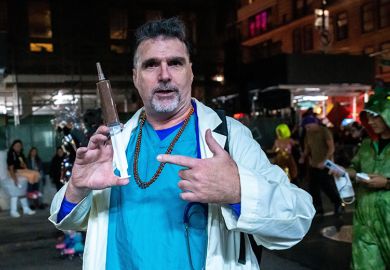Donna Dickenson describes “me medicine” as personalised healthcare, where the individual’s interests are the main focus, and “we medicine” as that which serves society’s common good. According to the author, “we medicine” is in decline, having its resources drained by individualised interests. For example, as valuable public health programmes are increasingly seen as interference with human rights, the refusal by individuals to be vaccinated against infectious diseases can threaten the health of whole populations. In discussing four prominent “me medicine” technologies (commercial genetic testing, pharmacogenetics, private umbilical cord blood banking and enhancement technologies), Dickenson considers four factors that may explain why biotechnological advances primarily serve “me medicine”, namely the threat of contamination, narcissism, corporate interests served by neoliberal policies, and the focus on autonomy and free choice.
The book makes many good points, such as the need for scepticism about overly optimistic predictions of biotechnological progress that suggest that GPs of the future will be mostly reduced to genetic counsellors. Dickenson also draws attention to the practices of many private corporations that trade in genetic data and other human tissues such as umbilical cord blood. She makes a powerful case for regulating the biotechnological industry, and for reclaiming the benefits of human genome research and other modern biomedical advances for the common good. While the book is mainly of relevance to the US medical system, there is some evidence here that may be of use to those with concerns about the National Health Service.
Dickenson makes a powerful case for regulating the biotechnological industry and reclaiming benefits of human genome research
However, I cannot fully agree with Dickenson’s criticisms of “me medicine”. Perhaps this is due in part to my upbringing: I grew up in communist Czechoslovakia, where “the common good” was our religion, whereas Dickenson grew up in the US.
Her book begins with a story about the wonderful care her family received in Veterans Administration hospitals and how she realised how lucky they were, given that many in the US cannot afford good healthcare. For my part, although all healthcare was free, I remember being vaccinated and given various treatments at school without my parents even being informed in advance. This made the individual a subject of the healthcare system. The UK’s NHS at least tries to balance the two.
It isn’t fully clear to me why the author insists on the dualism of “me medicine” and “we medicine”. For example, she characterises blood donation as “we medicine” when blood is donated to a shared blood bank, but “me medicine” when it is set aside for the donor’s own use in future surgery. Why is it necessary to see “we medicine” and “me medicine” in such sharp contrast? To view the same example from a different perspective, if I store my own blood, it could be argued that I am in no way harming the system but am, in fact, saving the shared blood bank resources. I also see no evidence that people who store their blood before surgery are less likely to donate altruistically to blood banks.
Moreover, I am concerned about Dickenson’s criticism of biotechnological advances. From the perspective of a patient, if I get seriously ill, I don’t really care that the expensive biotechnological advances are not as effective as promised (yet), and that they help only a small percentage of patients – as long as they help me. Dickenson cites an estimate that “only” 2 per cent of patients benefit from genetic and molecular testing. I see this not as a negligible number but as significant progress. More importantly, I believe that the future of biotechnology will continue to bring further improvements.
Me Medicine vs. We Medicine: Reclaiming Biotechnology for the Common Good
By Donna Dickenson
Columbia University Press, 296pp, £19.95
ISBN 9780231159746
Published 18 June 2013
Register to continue
Why register?
- Registration is free and only takes a moment
- Once registered, you can read 3 articles a month
- Sign up for our newsletter
Subscribe
Or subscribe for unlimited access to:
- Unlimited access to news, views, insights & reviews
- Digital editions
- Digital access to THE’s university and college rankings analysis
Already registered or a current subscriber?




